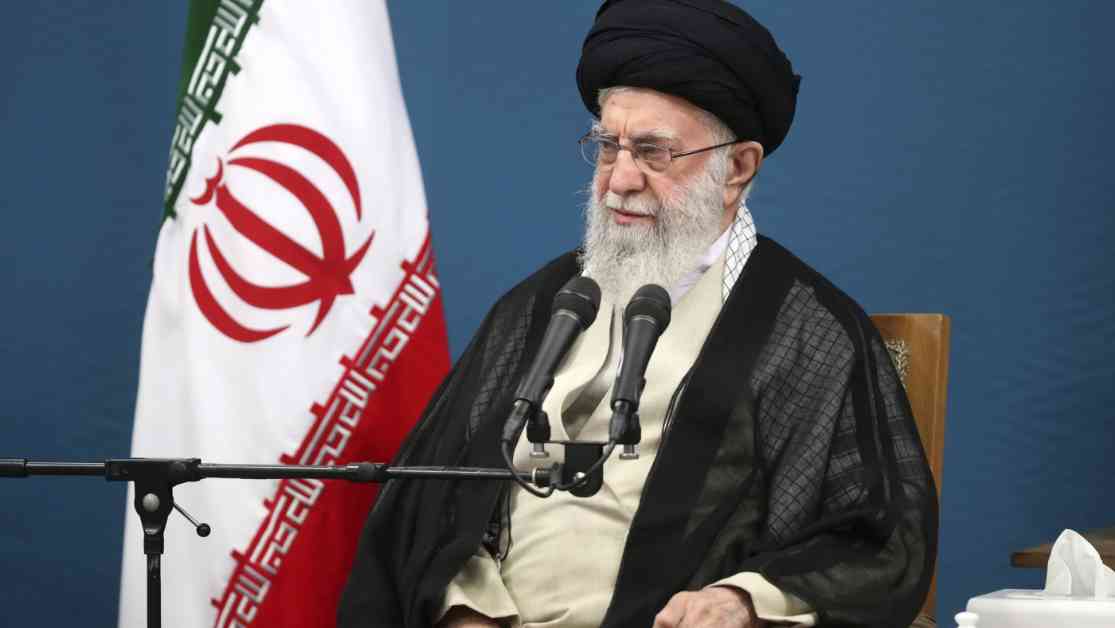Iranian Writer Sentenced to 12 Years for Tweeting Dot at Supreme Leader
In a shocking turn of events, Hossein Shanbehzadeh, an Iranian writer and activist, has been handed a draconian 12-year prison sentence for a seemingly innocuous act on social media. Shanbehzadeh, a vocal critic of Iran’s leadership, found himself in hot water after replying with a single dot, or period, to a post by Iran’s supreme leader, Ayatollah Ali Khamenei. This seemingly innocent action triggered a chain of events that ultimately led to his imprisonment, highlighting the oppressive nature of the Iranian regime’s crackdown on dissent.
A Longstanding Critic
Hossein Shanbehzadeh’s troubles with the Iranian authorities can be traced back to his vocal opposition to the regime’s policies. Known for his advocacy for political prisoners and the removal of mandatory headscarves for women, Shanbehzadeh had already faced legal repercussions for his online comments insulting Khamenei in the past. However, his latest run-in with the authorities has raised serious concerns about the extent to which freedom of expression is curtailed in Iran.
The Infamous Dot
The incident that ultimately led to Shanbehzadeh’s 12-year sentence occurred in June, when the 35-year-old writer was arrested in Ardabil, northwestern Iran. Just prior to his arrest, Shanbehzadeh had posted a simple dot in response to Khamenei’s tweet featuring the Iranian leader alongside the national volleyball team. What may have seemed like a trivial gesture quickly escalated into a full-blown legal battle, underscoring the regime’s intolerance for even the slightest forms of dissent.
A Crackdown on Dissent
Shanbehzadeh’s case is just one example of the Iranian government’s systematic crackdown on activists and critics. The regime’s hard-line stance against dissent has led to the imprisonment of numerous individuals, including artists, playwrights, directors, and bloggers. The fear of dissent within the country has prompted the leadership to resort to extreme measures to silence any form of opposition, creating a climate of fear and intimidation for those who dare to speak out against the regime.
The Case Against Shanbehzadeh
The charges brought against Shanbehzadeh paint a grim picture of the state of freedom of expression in Iran. The writer was sentenced to five years for alleged pro-Israel propaganda activity, four years for insulting Islamic sanctities, two years for spreading lies online, and an additional year for anti-regime propaganda. These charges, which seem to be based on flimsy evidence and vague accusations, highlight the authorities’ willingness to use any excuse to suppress dissent and silence critics.
The Legal Battle Ahead
Despite the harsh verdict handed down to him, Shanbehzadeh’s lawyer, Amir Raisian, has vowed to appeal the decision, particularly challenging the accusation of pro-Israel activity. Raisian’s determination to fight for his client’s rights in the face of overwhelming odds underscores the importance of legal representation in cases of political persecution. The prosecutor’s office in Ardabil, however, has doubled down on its allegations, claiming that Shanbehzadeh had been in contact with Israeli intelligence officers and was arrested while attempting to leave the country.
The International Response
The international community has been quick to condemn Shanbehzadeh’s sentence and call for his release. Human rights organizations, activists, and foreign governments have voiced their outrage at the blatant violation of freedom of expression in Iran and the unjust treatment of Shanbehzadeh. The case has once again highlighted the need for greater scrutiny of Iran’s human rights record and the urgent need for reforms to protect the rights of individuals like Shanbehzadeh who are targeted for their peaceful activism.
A Call for Justice
As the world watches the unfolding legal battle of Hossein Shanbehzadeh, it is crucial to remember that his case is just one of many in Iran where individuals are persecuted for daring to speak out against the regime. The international community must continue to pressure the Iranian government to uphold the basic rights of its citizens and end the systematic repression of dissenting voices. Only through sustained advocacy and solidarity can individuals like Shanbehzadeh hope to see justice prevail in the face of tyranny and oppression.



























